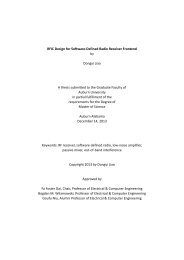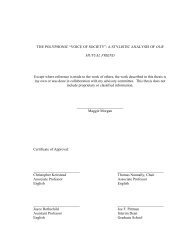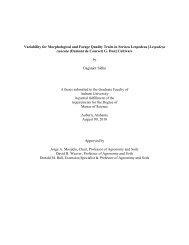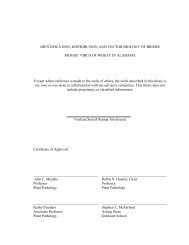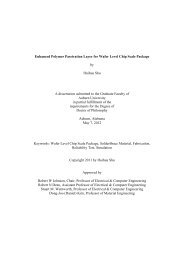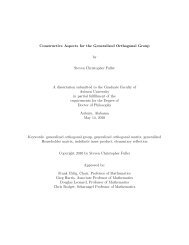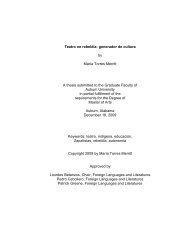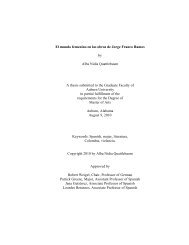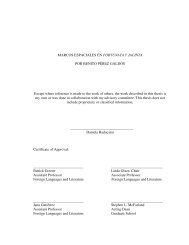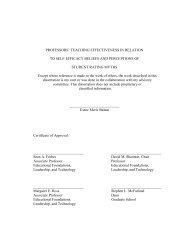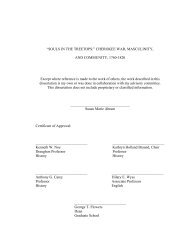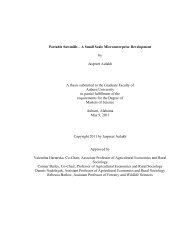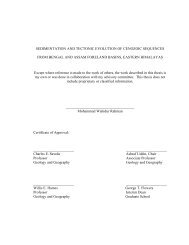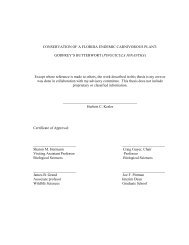the trouble with gender in othello - Auburn University Electronic ...
the trouble with gender in othello - Auburn University Electronic ...
the trouble with gender in othello - Auburn University Electronic ...
Create successful ePaper yourself
Turn your PDF publications into a flip-book with our unique Google optimized e-Paper software.
If, as Butler writes, <strong>the</strong>re is no practical possibility of form<strong>in</strong>g a sexuality outside<br />
of <strong>the</strong> cultural, “matrix of power” (which must be at least “partially understood<br />
<strong>in</strong> terms of heterosexual and phallic cultural conventions”) <strong>the</strong>n it is of course<br />
important that we address <strong>the</strong> “task of reth<strong>in</strong>k<strong>in</strong>g subversive possibilities for<br />
sexuality and identity <strong>with</strong><strong>in</strong> <strong>the</strong> terms of power itself.” Butler herself does this<br />
by careful exam<strong>in</strong>ations of <strong>the</strong> cultures of drag and butch/femme lesbians,<br />
among o<strong>the</strong>r fr<strong>in</strong>ge sexualities, conclud<strong>in</strong>g that <strong>the</strong>se are <strong>in</strong> fact not replications<br />
of <strong>the</strong> “matrix of power,” but subversions.<br />
However, must we only look at <strong>the</strong>se possibilities <strong>in</strong> our own time? It is<br />
appropriate to look for examples of transgression and subversion of <strong>the</strong> “matrix<br />
of power” <strong>with</strong><strong>in</strong> earlier works of literature and art as well, particularly those<br />
prom<strong>in</strong>ent <strong>in</strong> <strong>the</strong> western canon, because it is impossible to ignore <strong>the</strong> impact<br />
that many of <strong>the</strong>se works have had on western culture. Therefore, this <strong>the</strong>sis will<br />
exam<strong>in</strong>e William Shakespeare’s O<strong>the</strong>llo us<strong>in</strong>g <strong>the</strong> above quote, as well as o<strong>the</strong>rs<br />
from Gender Trouble, to exam<strong>in</strong>e ways <strong>in</strong> which <strong>the</strong> characters Desdemona and<br />
O<strong>the</strong>llo form “subversive” identities <strong>with</strong><strong>in</strong> <strong>the</strong> “matrix of power” that exists<br />
<strong>with</strong><strong>in</strong> <strong>the</strong> text, as well as <strong>the</strong> “matrix of power” <strong>in</strong> which <strong>the</strong> fictive work was<br />
created.<br />
A primary reason for choos<strong>in</strong>g O<strong>the</strong>llo for Butlerian exam<strong>in</strong>ation is that, as<br />
Michael Neill states, O<strong>the</strong>llo is “a play that has rightly come to be identified as a<br />
foundational text” (Neill 361). The play is a core work of <strong>the</strong> western canon, and<br />
2



